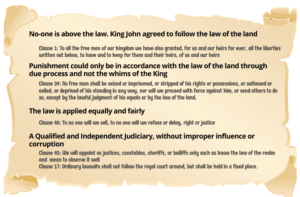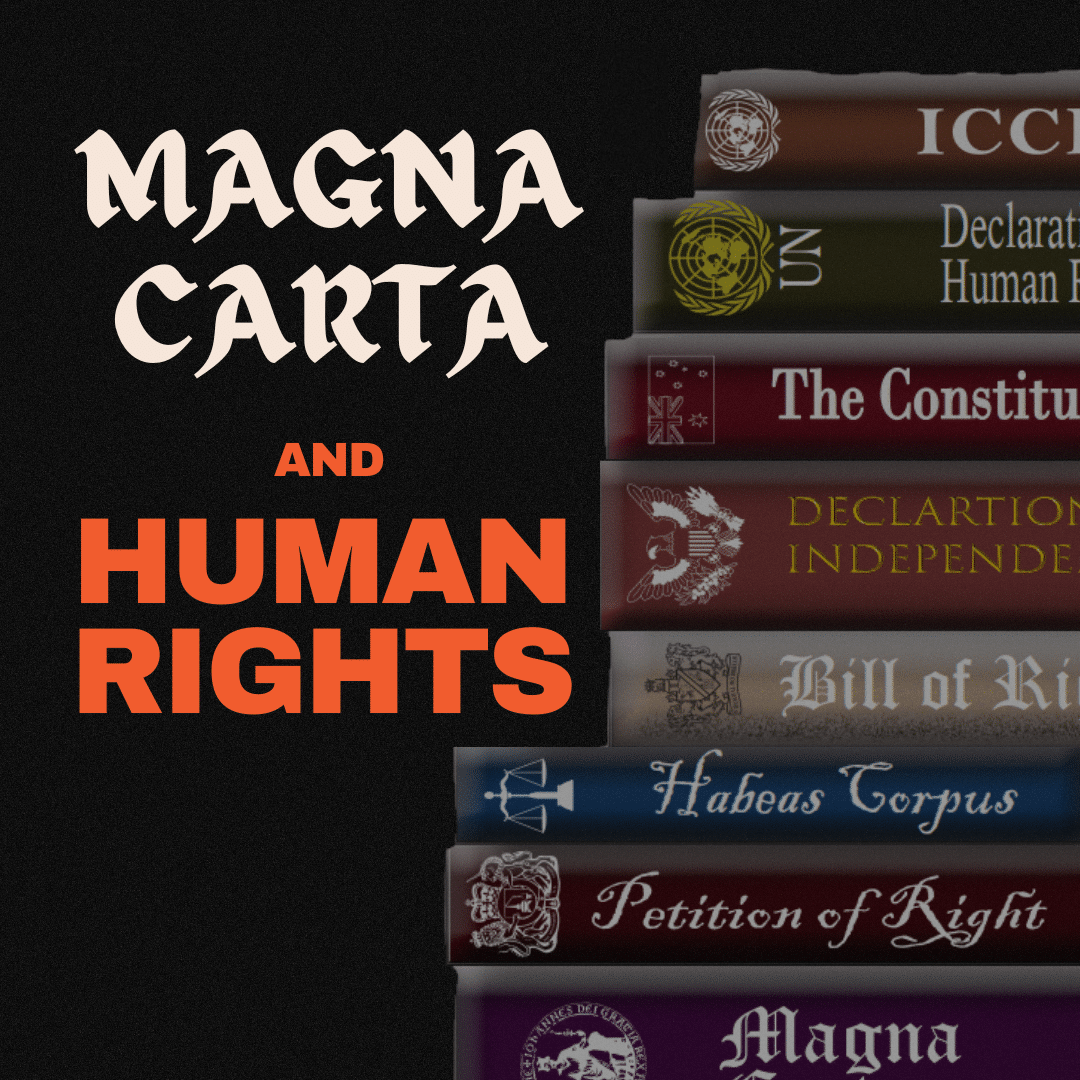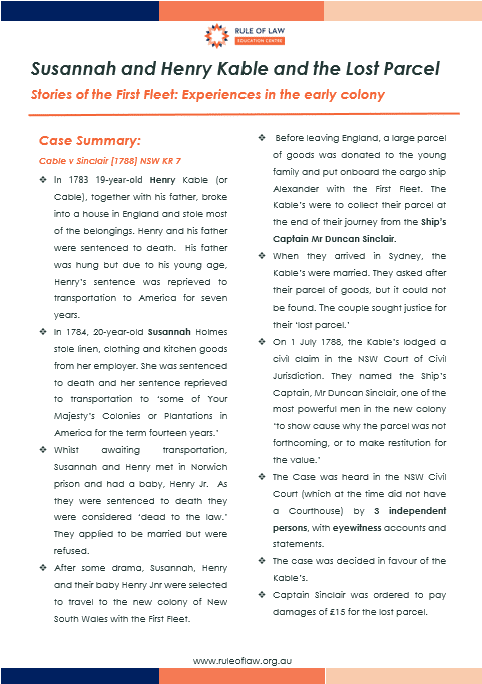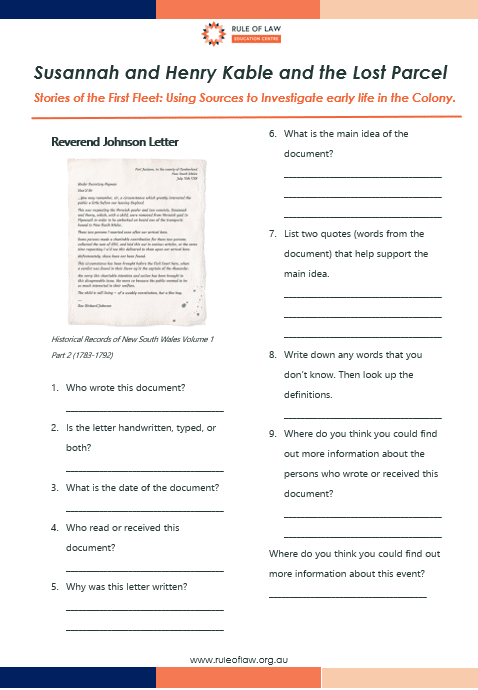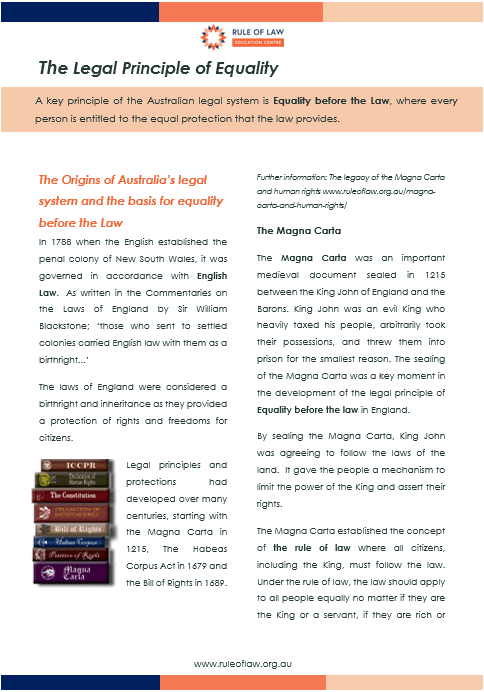No One is Above the Law
At its most basic level, the rule of law is the concept that both the government and citizens know the law and obey it.
The phrase ‘equality before the law’ is often used in relation to the rule of law and means:
the law should apply to all people equally regardless of their status in society – rich or poor, young or old, regardless of their gender, race, culture, religion, or any other attribute.
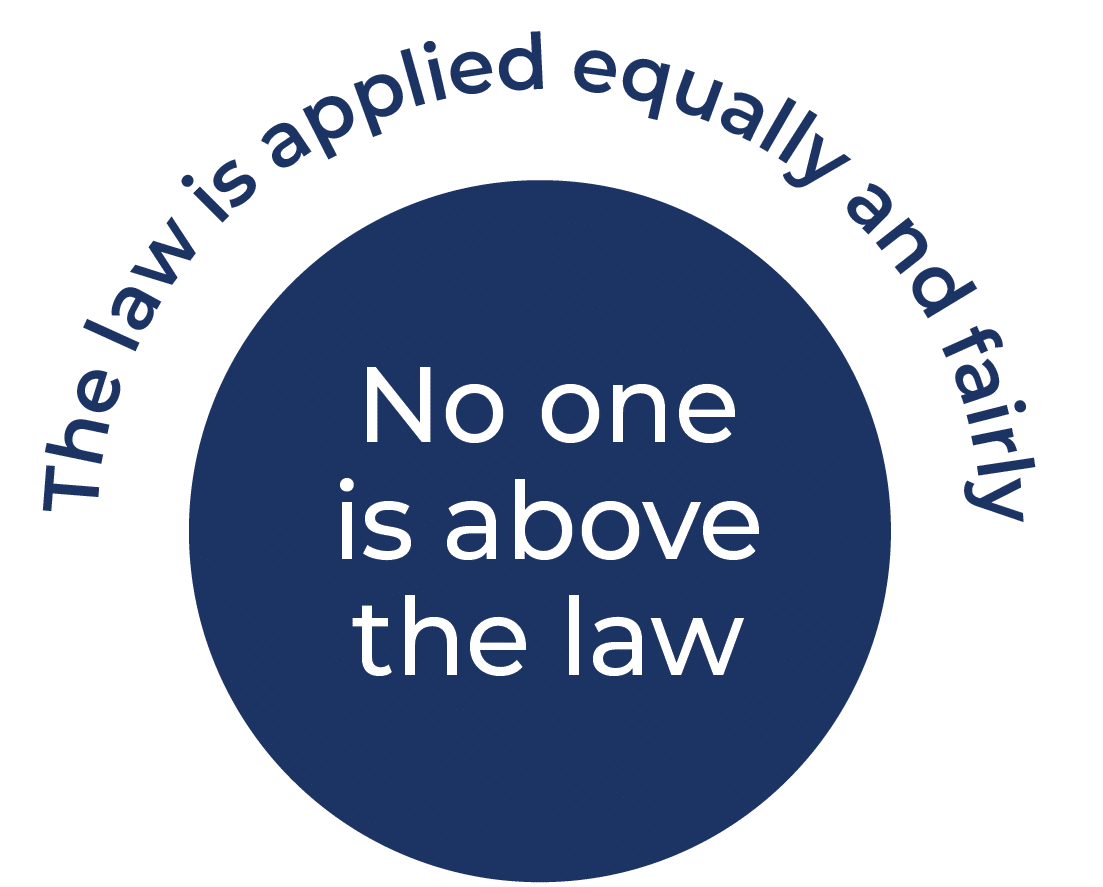
Equality before the law means that all human beings have the right to be treated equally before the law. They are also entitled to the equal protection of the law, which means all people have the right to be treated fairly and not be discriminated against because of their race, colour, gender, language, religion, political beliefs, status or any other unlawful reason.
Importantly, the law must be superior. All citizens must enjoy equality before the law and be subject to the laws of Australia.
This concept was outlined by Professor A.V. Dicey who described the rule of law as
1. It means . . . the absolute supremacy or predominance of regular law as opposed to the influence of arbitrary power, and excludes the existence of arbitrariness, of prerogative, or even of wide discretionary authority on the part of the government. Englishmen are ruled by the law, and by the law alone; a man may be punished for a breach of law, but he can be punished for nothing else.
2. It means equality before the law, or the equal subjection of all classes to the ordinary law of the land administered by the ordinary law courts; the ‘rule of law’ in this case excludes the idea of any exemption of officials or others from the duty of obedience to the law which governs other citizens or from the jurisdiction of the ordinary courts.
3. With us the law of the constitution, the rules which in foreign countries naturally form part of a constitutional code, are not the source but the consequence of the rights of individuals, as defined and enforced by the courts; . . . the principles of private law have . . . by the action of the courts and Parliament so extended as to determine the position of the Crown and its servants; thus the constitution is the result of the ordinary law of the land.
Origins of Equality before the Law: Principles from the Magna Carta
From the Magna Carta we have the principle that all citizens, including those in power, should be fairly and equally ruled by the law.
The Magna Carta was an important medieval document sealed in 1215 between King John of England and the Barons. King John was an evil King who heavily taxed his people, arbitrarily took their possessions, and threw them into prison for the smallest reason. The sealing of the Magna Carta was a key moment in the development of the legal principle of Equality before the law in England.
By sealing the Magna Carta, King John was agreeing to follow the laws of the land. It gave the people a mechanism to limit the power of the King and assert their rights. The Magna Carta established the concept of the rule of law where all citizens, including the King, must follow the law.
Under the rule of law, the law should apply to all people equally no matter if they are the King or a servant, if they are rich or poor.
As all people are equally subject to the law, all people must equally answer for their actions under the law and the law must be applied to each person in the same way. To ensure all people are bound by laws, there also must be equal access to the protections provided by the law through a fair trial and an independent and impartial judiciary.
The Magna Carta included provisions that ensured equality before the law such as
Equality before the Law and the principles from the Magna Carta that no-one is above the law and that laws must be applied equally and fairly, became key legal principles of the English justice system.
 Case Study of Equality before the Law: The story of the first civil case in New South Wales, ‘The Lost Parcel’
Case Study of Equality before the Law: The story of the first civil case in New South Wales, ‘The Lost Parcel’
Susannah and Henry were poor convicts who could not read or write but they were able to use the justice system to restore their loss and sue the powerful Ship’s Captain.
This case study demonstrates how the principle of equality was part of the legal system in the early colony of New South Wales and how this protected the rights of citizens, including convicts.
Summary of the Susannah and Henry Kable Case
Stories of the First Fleet: Experiences in the early colony
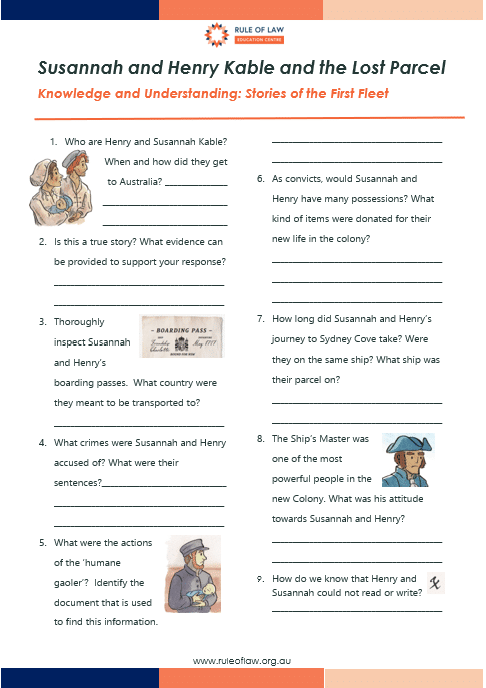
Source Document Analysis
Knowledge and Understanding: Stories of the First Fleet
Extended Source Document Analysis
Stories of the First Fleet: Using Sources to Investigate early life in the Colony.
The Legal Principle of Equality
Origins of Australia's Legal System
Further reading:
The Law of the Constitution: AV Dicey
The Rule of Law: T Bingham
https://peo.gov.au/understand-our-parliament/how-parliament-works/system-of-government/rule-of-law/

